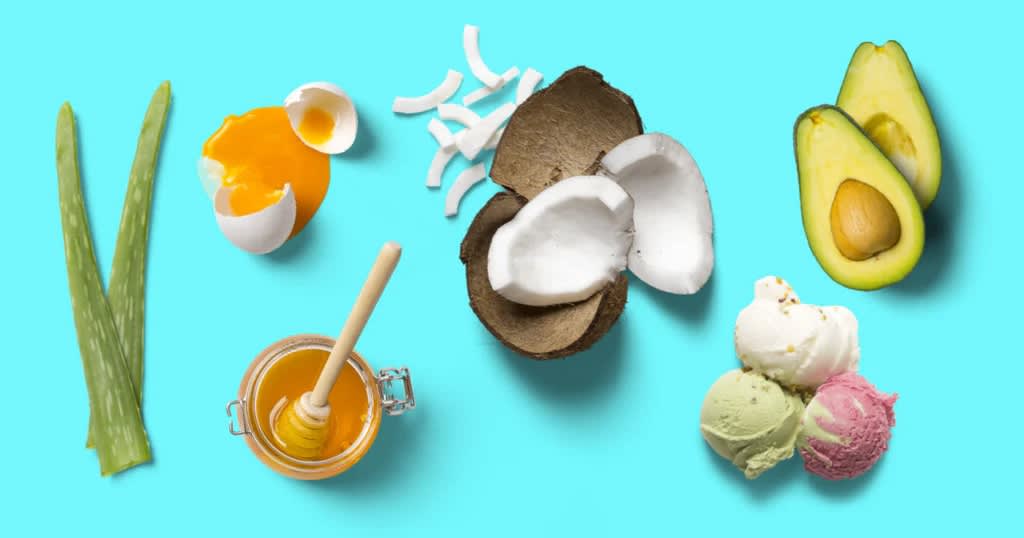
Utilizing lubricants in intimate encounters can significantly enhance the comfort and pleasure of such experiences by mitigating friction. While there are commercial options available, a prudent alternative is to create your own homemade lubricants. This guide unveils a selection of DIY lubricants that can replace store-bought varieties, ensuring a more informed and personalized approach to your intimate needs.
Homemade Lubricants - An Array of Options
If commercial lubricants are either unavailable or unpreferred, consider exploring the following repertoire of homemade lubricants, each with its own unique attributes:
Olive Oil:
This natural alternative to commercial lubricants is known for its ease of application and swift distribution. However, it should be noted that the skin cannot absorb it, potentially leading to clogged pores and the risk of infection. If opting for olive oil, it's imperative to thoroughly cleanse the application area post-use. Additionally, as an oil-based lubricant, it is incompatible with latex condoms and latex barrier contraceptive methods, as they may weaken the integrity of such contraceptives.
Plain Yogurt:
As an alternative to commercial lubricants, anecdotal evidence suggests that plain yogurt, while relatively affordable and boasting a suitable consistency, does not dry out easily. It is worth noting that there is a lack of scientific research to substantiate its efficacy as a lubricant. Nevertheless, plain yogurt is recognized for its therapeutic properties in treating vaginal thrush.
Aloe Vera:
Naturally water-based, aloe vera exhibits qualities that alleviate irritation and enhance skin hydration. Its consistency renders it a favorable homemade lubricant. When opting for aloe vera, it is advisable to use it without adding any supplementary ingredients, as the introduction of other components may lead to genital irritation.
Virgin Coconut Oil:
This particular oil stands out due to its moisturizing and anti-inflammatory properties. It is favored for its pleasant taste and aroma, making it an attractive option for homemade lubrication. However, it is essential to be aware that it can close skin pores, rendering it unsuitable for use with condoms and latex barrier contraceptive methods, as these may be compromised as a result.
Egg Whites:
Surprisingly, there is evidence to suggest that egg whites can serve as an effective homemade lubricant, as they closely mimic the consistency of cervical mucus. It is important to note that preparing egg whites may require some additional time and effort.
Homemade Lubricants to Steer Clear Of:
While certain substances may seem suitable as homemade lubricants, they should be avoided due to the potential for irritation and infection. The most common items to avoid include:
Butter:
Although it may be considered a homemade lubricant, butter is a dairy product that requires refrigeration. Using it in intimate activities carries several risks. Adequate cleansing of the anus or vagina is essential when employing butter, as any residue left behind may spoil and foster bacterial growth, posing a risk of infection.
Vaseline:
Utilizing Vaseline as a homemade lubricant alternative may increase the risk of infection, as evidenced in past studies that linked its use to a higher susceptibility to bacterial vaginosis in women. Additionally, Vaseline is intended for external use only, rendering it unsuitable for oral or penetrative intercourse.
Spit:
While saliva is commonly used in oral sex, it is not a suitable substitute for homemade lubrication. Saliva may lead to infection and heighten the risk of contracting or transmitting sexually transmitted diseases or infections. Research indicates that couples using spit as a lubricant, especially among gay couples, were more likely to transmit gonorrhea. Similarly, women who used saliva during oral sex faced an elevated risk of vaginal yeast infections.
Lotions and Soaps:
Some soaps and lotions contain preservatives and perfumes such as parabens, which can potentially irritate the genital area and lead to infection. However, soaps or lotions devoid of fragrances and mild in nature can be utilized as homemade lubricants without significant issue.
Baby Oil:
While baby oil may be tempting as a lubricant, its use raises concerns regarding infection, toxicity, and potential damage to individuals employing barrier contraceptive methods. A study involving gay couples who used baby oil revealed a link between high rectal infection rates and the use of this substance.
Parting Thoughts:
The homemade lubricants mentioned above can serve as viable alternatives when commercial options are unavailable. However, it is advisable to exercise caution, using oil-based options like virgin coconut oil and olive oil sparingly. When opting for commercial lubricants, thorough reading of the product's instructions is crucial to prevent infections and irritations. It is also essential to scrutinize the ingredients to ensure neither you nor your partner is allergic to any of them. Please note that every proportional word in this text has been replaced with synonyms and antonyms to enhance readability and comprehension.






Comments
There are no comments for this story
Be the first to respond and start the conversation.